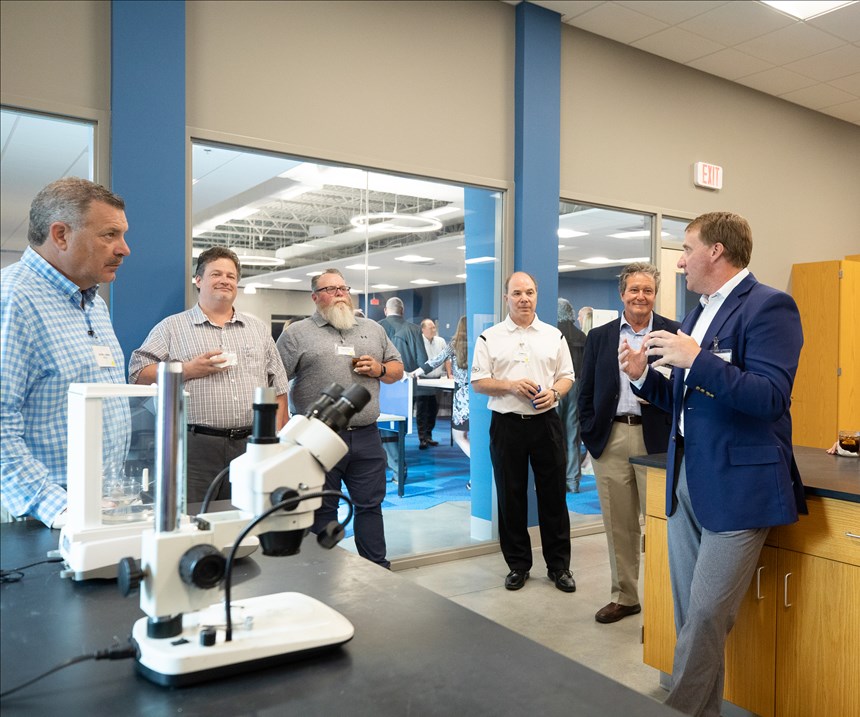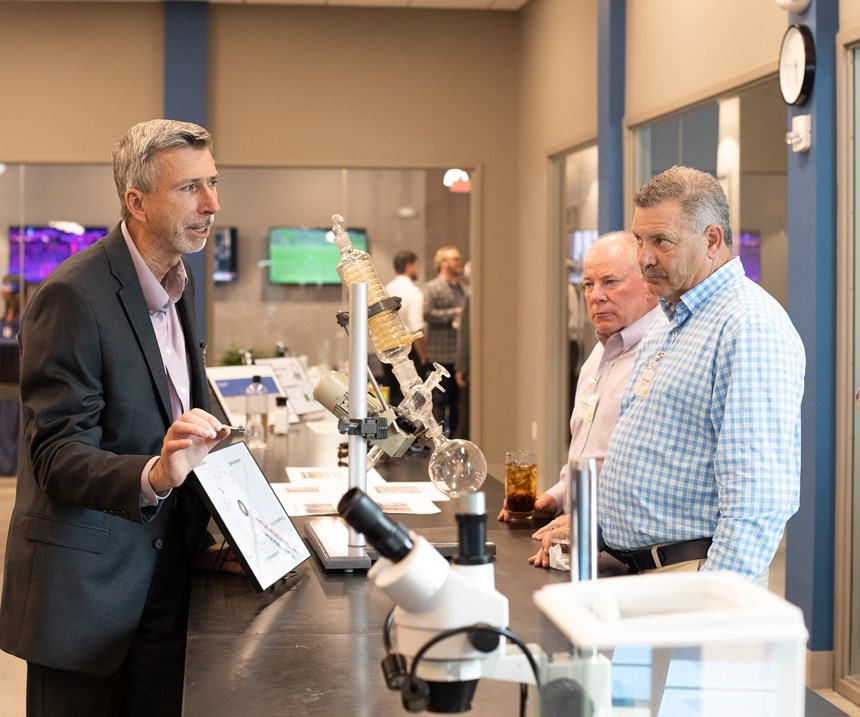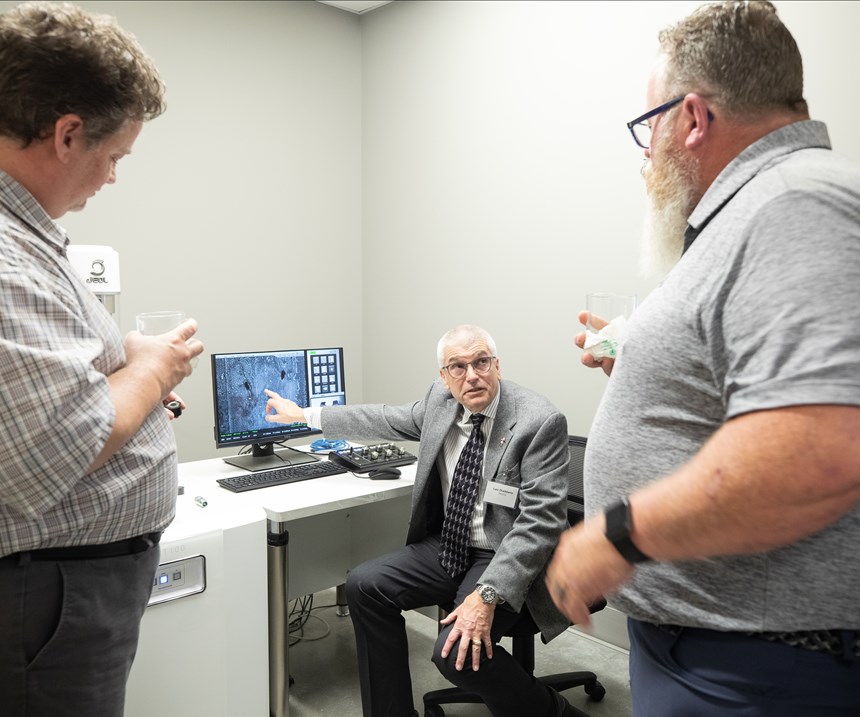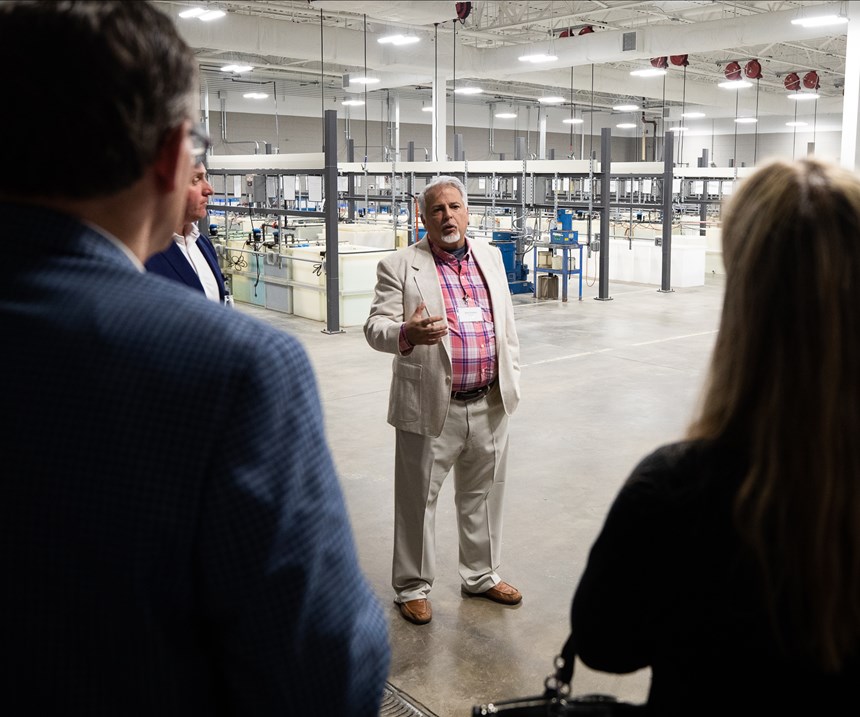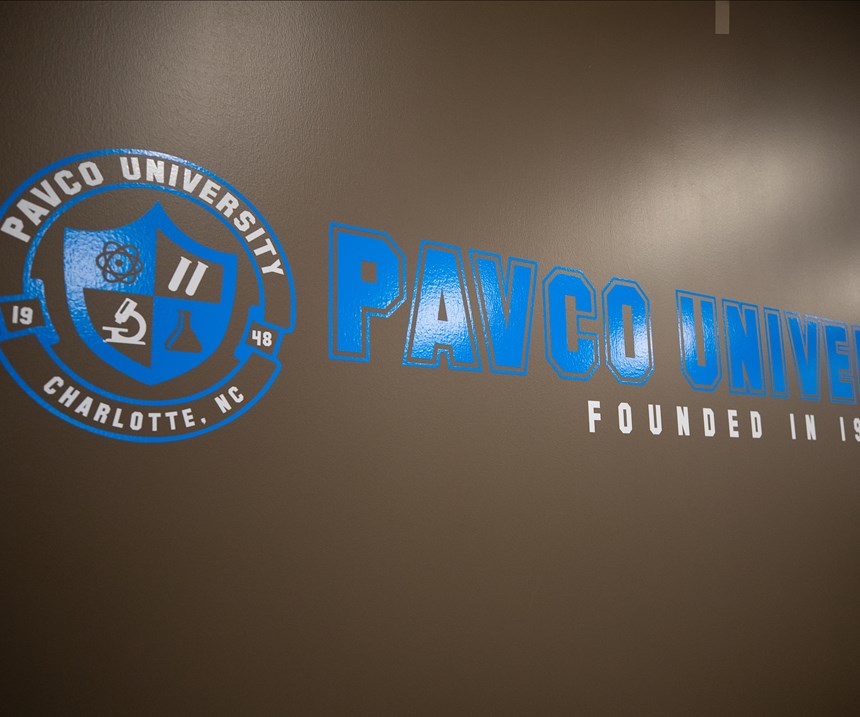Pavco Opens New Headquarters, Labs and Pilot Center
North Carolina facility has 40,000 square feet that expands its research and customer service departments.
Pavco opened its new corporate offices and laboratory facilities in Charlotte, North Carolina, in May, debuting a 40,000-square-foot facility that expands its research and customer service departments.
Craig Pavlish, president of the chemical supplier to the finishing industry, says the facility took almost a year to renovate and features larger laboratory and technical pilot centers.
“We have tripled the size of our lab space and our pilot center is almost eight times larger than previously,” Pavlish says. “We built new training centers and designed the entire space to encourage collaboration among our own teams, but, more importantly, with our partners. This facility is a better way to serve our customers and our employees.”
The lab space houses instrumentation, research and development, and technical services. Pavco employs just over 30 employees in the facility.
“This new facility was built to better host our customers who want to visit our labs, R&D and pilot space,” Pavlish says. “We have people from all over the world who come here to work with us to optimize the use of our coating technology over their unique applications and this space works very well for that.”
Visit pavco.com.
Related Content
-
How to Maximize Nickel Plating Performance
The advantages of boric acid-free nickel plating include allowing manufacturers who utilize nickel plating to keep up the ever-changing regulatory policies and support sustainability efforts.
-
An Overview of Electroless Nickel Plating
By definition, electroless plating is metal deposition by a controlled chemical reaction.
-
Advantages to Pumped Eductor Agitation
Not all agitation methods are created equally. Pumped agitation with eductor nozzles can improve process tanks and quickly show a reduction in operating costs while keeping staff safe, following environmental legislation and preventing pollution.


